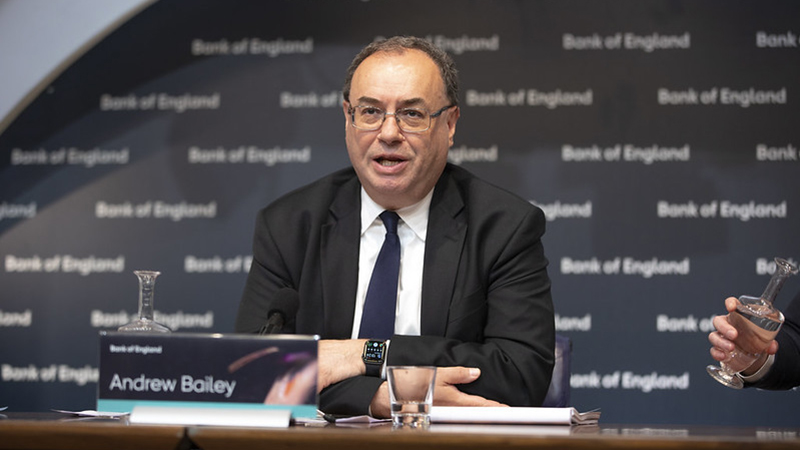Inflation in the UK has dipped to 3.6% from 3.8% on an annualised basis, tilting the balance between the Bank of England’s priorities in favour of cutting rates next month.
The numbers released by the ONS were in line with consensus estimates and keep inflation on track to return to the Bank’s 2% target next year.
While still above that mark, the direction of travel of the inflation figure and rising evidence of a slowing economy is expected to mean the doves on the Monetary Policy Committee hold sway on 18 December.
Whether it is too little, too late to stave off a recession is another question, as employment data and other measures of economic health have been weak in recent weeks.
Chancellor Rachel Reeves’ Budget on 26 November could yet change the Bank of England’s plan, if not for December then for the meetings in the early part of 2026.
Andrew Wishart, senior UK economist at Berenberg, said: “The cooling in underlying price pressures in October extends a string of soft UK economic data.
“At the 6 November Bank of England (BoE) meeting the swing voter, Governor Andrew Bailey said he was waiting to see if disinflation continued in ‘upcoming economic developments this year’ before switching his vote from hold to cut.
See also: FCA announces plans for UK equity consolidated tape
“Slower wage growth and services price increases than the central bank anticipated since will likely convince him that it has,” he continued. “We therefore bring forward the next 25 point cut in our policy rate forecast to 17 December. Previously we thought the Bank of England would delay it until February 2026.”
Danni Hewson, AJ Bell head of financial analysis, noted that while the fall in inflation opens the door to a rate cut, the imminent Budget could yet throw a spanner in the works.
“Today’s data could have a silver lining, with market expectation that the Bank of England will deliver an interest rate cut before Christmas edging up, although there is, of course, a rather large elephant taking up most of the space in the room.
“If Rachel Reeves’ upcoming Budget includes policies which could be seen as inflationary, then those rate setters might decide they need to take a bit more time to see exactly how the economy deals with the chancellor’s measures.”
See also: Budget 2025: The investment industry’s wishlist
John Hudson, fund manager, Premier Miton UK Growth fund, said: ”While falling slightly less than forecast, consumers will be relieved to see the UK’s stubbornly high level of inflation starting to come down.
“Last year’s Budget contained inflationary policies such as increasing NIC for employers. That appears less likely this year, potentially paving the way for further rate cuts as inflation continues to fall.”
Grant Slade, UK economist at Morningstar, added: “The easing of price growth for housing and household services – which includes rent, council taxes, and utility bills – was the biggest driver of month-on-month deceleration of headline CPI inflation.
“Here, gas and electricity prices decelerated significantly, reflecting the marked slowdown in the growth of Ofgem’s energy price cap in October. Meanwhile, food and non-alcoholic beverages placed some upward pressure on inflation in October.
“We continue to expect a 25-basis point rate cut to eventuate from the Banks’s MPC next meeting in December. Today’s data inflation data – taken in combination with last week’s soft jobs market numbers – provides additional evidence the risk of sticky, above-BoE target inflation is receding, while the risk of weak economic growth is rising.”
